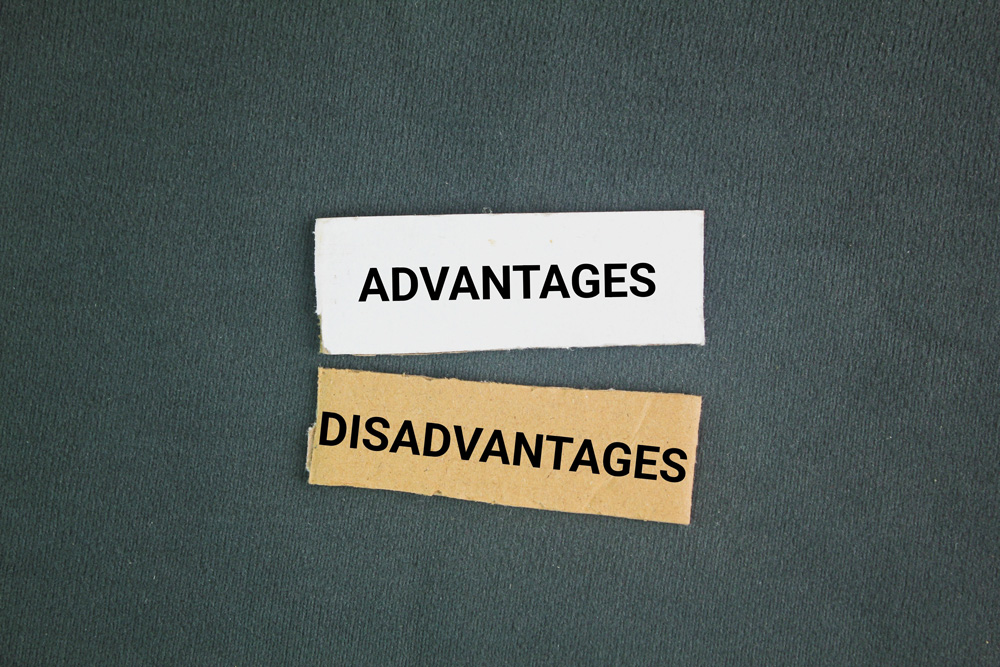
What is Pay-Per-Click (“PPC”) Advertising?
PPC is a straightforward advertisement type you’ll see on different search engines (mainly Google), in the “further reading” sections at the end of some articles, and on social media platforms.
For instance, that “sponsored” section you often see in your Google search results is where the ads will appear.
Instead of aimlessly waiting for organic factors to bring an audience/visitors/customers to your website, you (the business putting out an ad) pay the search engine platform for
1. Ads on search platforms and
2. A feature/display of your site or product in the results shown to people looking up specific terms.
And you pay only when you get actual clicks – thus the name “Pay-Per-Click.”
Why is PPC so popular?
Speed and precision are what make PPC so appealing to growing businesses. Its performance, number of clicks, conversions, and other results are measurable and controllable, and it can drive real leads within days instead of weeks.
However, like any marketing tool, PPC comes with trade-offs. Without the right strategy, PPC costs can rise quickly, and success depends on constant testing and refinement.
In other words, while PPC Advertising provides quick visibility and data, it also requires ongoing management and strategy to work properly.
How Does PPC Work?
As explained above, PPC advertising is a model where you pay only when someone clicks on your ad. You push your ads to people already searching for what you offer, and you appear there thanks to precise targeting. Nothing is by chance.
Google Ads and Bing Ads are the most popular platforms for PPC campaigns. Since Google holds 90% of the global search market, most examples will be from there.
Paid placements on social media (Facebook, Instagram, LinkedIn) are also a form of Pay-Per-Click advertising.
You choose specific keywords or audience traits, create an ad, and then compete in a digital auction whenever someone searches for that term.
Here’s how that auction works:
When a search happens, Google looks at every ad targeting that keyword. It ranks them based on a mix of your bid (how much you’re willing to pay per click) and the quality of your ad and landing page.
The goal isn’t just to spend the most money but to show the most relevant ad. That means a well-written, helpful ad can often beat a higher bidder because it serves the user intent more correctly.
You also control your budget completely. You can set a daily limit, pause PPC campaigns at any time, or shift your spending based on results. Everything is trackable–from clicks and conversions to costs and returns, so you always know where your money is going and what you’re getting back.
The Advantages of PPC Advertising
-
1. Fast Results and Immediate Visibility
PPC is the way to go if you want to be seen by your target audience right now. As soon as your PPC campaign goes live, you will appear in search results or social feeds. Organic methods (e.g., SEO) can take months to see results. However, you can see your first leads in hours or days with PPC.
In fact, recent stats show that 93% of marketers consider PPC an ‘effective’ or ‘highly effective’ channel[1].
-
2. Precise Targeting and Audience Control
One of the standout things about PPC is that you decide exactly who sees your ad. You pick the keywords people are searching for, the geographic area, interests, demographic details, and even the time of day your ad shows up. This means you’re showing up where it makes sense instead of wasting budget showing up where it doesn’t.
Studies confirm that targeting is one of the top benefits of PPC campaigns[2].
-
3. Measurable, Trackable ROI
With PPC, you get real numbers. You can see how many people clicked your ad, how many took the next step (like filling out a form or calling), and how much you spent.
According to research, visitors from PPC are about 50% more likely to convert than those from other sources[3]. That’s mainly because PPC requires a more refined funnel, and people get a better experience from the moment they find your ad to visiting the landing page, and finally converting. Standard pages can be broader compared to PPC landing pages.
-
4. Budget Flexibility
PPC doesn’t lock you into big commitments. Whether you have a modest budget or more to spend, you’re in control.
You pick the daily spending, you can pause PPC campaigns, and you can increase or decrease spending depending on performance. Budgeting articles show that flexible PPC budgeting is one of its major advantages[4].
-
5. Supports Other Channels (Like SEO and Content)
PPC is not a standalone tool or channel. It can help every other part of your digital marketing. With PPC, you can generate rapid data–see how people are behaving, what phrases and keywords they prefer, what audience converts better, etc.
All of that information can help with the rest of your marketing. You can find better keywords for SEO, know what audience to target with your blog posts, or determine which location is better suited for your physical ads.
So even if you don’t have the biggest budget, PPC should be a mandatory part of your digital marketing.
-
6. Truly Customizable
You can make small adjustments to make your campaigns run smoothly. You can also do A/B tests to see which version of your ad is better. Or run one version of your campaign to one audience, and another to another audience.
The Disadvantages of PPC Advertising
-
1. Costs Can Add Up Quickly
If you are in a competitive market or niche, prices can rise fast. This means that if you are bidding on keywords that many of your competitors also want and bid on, the cost-per-click (CPC) will increase and be very high.
For example, if you are a small law firm and want to bid for big keywords that more people search for, it will be hard to compete against the big guys. You will have to be more creative and find smaller, cheaper words that might not be as lucrative.
If your campaign isn’t tightly managed–meaning good keyword choice, strong ad copy, and smart landing pages–you might spend a lot without getting meaningful results.
-
2. No Clicks, No Data
Even with a good budget, if your ad doesn’t appeal or target the right audience, clicks may be low, and without clicks, you don’t get the valuable data you need. You need more data to fine-tune your campaign to get better CPC in the future.
Worse yet: you might pay for impressions or weak clicks that don’t convert.
It is crucial to pick keywords wisely, craft compelling ads, and use landing pages that make sense for the offer.
-
3. Requires Ongoing Optimization
PPC needs consistent attention, unlike some marketing tactics that build momentum over time (think long-term SEO or content marketing). A PPC campaign isn’t “set and forget.” You’ll need to watch performance, change bids, tweak ads, pause poorly-performing keywords, and adapt to what’s working.
Sometimes the landscape changes daily. And if you don’t catch those changes on time, you can lose some of your money.
-
4. Ad Fatigue and Competition
When the same people see the same ad repeatedly, engagement tends to drop; that’s called ad fatigue[5].
Also, high competition in your industry can mean you constantly have to raise your bids, test new creatives, or find new angles just to stay visible.
So, you constantly have to tinker with your ads to get the best results. Sometimes, you have to run several versions of the same ad, just to prevent ad fatigue.
-
5. Skills Required
As you probably figured out by now, running PPC ads requires a lot of experience. Google has made it easier over the years to simply add a budget and run a campaign, but you will always need to optimize it for the campaign to be truly profitable.
Is PPC Right for Your Business?
PPC can be powerful, but it isn’t the right move for every business.
The key is to look at your goals, timeline, and marketing foundation’s readiness. Think of it less as “Should we do PPC?” and more as “Does PPC fit where we are right now?”
PPC Might Be a Good Fit If…
- You need leads right now and can’t wait for SEO results.
- You have a flexible budget and can test, learn, and refine
- You already have strong messaging, landing pages, and precise tracking.
- Your industry has search demand, and you want to stay visible against competitors.
- You want measurable results, data insights, and visibility fast.
PPC Might Not Be Ideal If…
- You have time to invest in long-term channels like organic search and content marketing.
- You’re limited to a small, fixed budget and can’t risk variable costs.
- You’re still building your brand or haven’t set up conversion tracking yet.
- Your niche is so competitive that bids are incredibly high, reducing ROI.
- Your main goal is brand awareness or long-term authority building.
Still, just because PPC might not be “ideal” doesn’t mean it’s not right. You may have time to invest in SEO, but it doesn’t mean that you can’t run campaigns at the same time. As mentioned earlier, SEO and PPC work hand-in-hand.
A small budget and intense competition mean PPC advertising will be tough. But it doesn’t mean it can’t bring leads. You just need a knowledgeable campaign manager who can fine-tune every aspect of the campaign. Maybe find smaller keywords, pinpoint the ads to specific locations, optimize the titles and descriptions of ads, and test different versions.
If you’re unsure whether PPC fits your goals or timing, that’s fine. A good marketing decision starts with clarity.
If you’d like help determining where PPC belongs in your overall plan, Uptick can walk you through it step-by-step with zero guesswork.
PPC vs. SEO: Which Should You Choose?
PPC and SEO work toward the same goal–getting your business in front of the right people, but they take very different paths to get there.
PPC gives you speed. You can launch a campaign and begin to see traffic in hours. It’s excellent for testing offers, promoting events, or getting quick visibility when timing matters.
SEO gives you staying power. It takes longer to build, but once your content ranks, it can bring in consistent traffic without paying for every click.
In most cases, the smartest approach isn’t choosing one over the other–it’s combining them.
PPC gives you the fast insights and data you need now, while SEO builds a strong foundation for the future.
To learn how SEO fits into a long-term marketing plan, visit our SEO Fundamentals guide.
Sources
[1] https://blog.coupler.io/ppc-statistics/
[3] https://retainiq.io/blog/effectiveness-of-pay-per-click-advertising/
[4] https://searchengineland.com/ppc-budgeting-adjust-scale-optimize-data-452493
[5] https://cheq.ai/blog/ad-fatigue-killing-marketing-campaigns/




